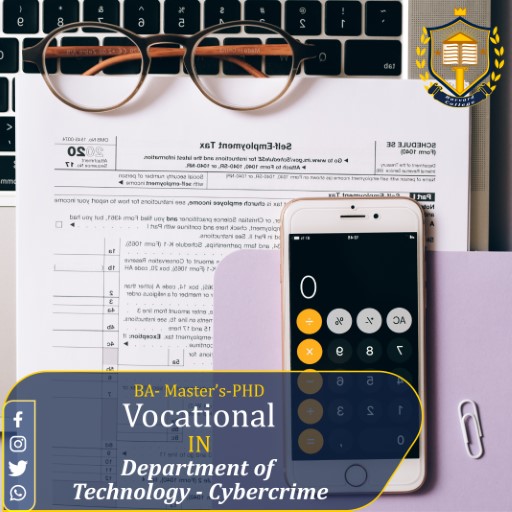Department of Technology - Cybercrime

اتصل بنا عبر البريد الإلكتروني على info@oxfordcollage.uk أو أرسل استفسارًا تجاريًا عبر الإنترنت.
who should attend?
This program is aimed at:
-All students and graduates of colleges specializing in information technology, networks and communications.
-Managers and information security personnel.
-Officials of modernization and development of safety systems within companies or institutions.
-All employees in the communications and information preservation departments.
-Electronic archiving workers.
-Everyone is looking to enter the world of combating cybercrime and excellence in it, or to apply for a job in this field.
objective
This program is designed to provide you with basic knowledge in the field of information security and networks, knowledge of what cybercrime is, developing your skills to detect, analyze and investigate, and how to preserve digital data.
content
Program hubs:
1- Information and Network security: a science that protects information from threats or barriers that prevent abuse, through the use of standards and procedures that prevent this information from reaching unauthorized persons. In this theme, we will address:
-Computer network security
-Basic concepts and interests used in the field of information security
-Intrusion detection and prevention systems
-How to hack
-Use Kali Linux penetration test operating system
2- Cybercrime: Cybercrime is progressing at an incredible rapid pace, and cyber criminals have become more flexible, as they quickly exploit new technologies to carry out their attacks using modern methods, so you must always keep up with new techniques to understand the possibilities they create for criminals, and how they can be used in the fight against cybercrime. We’ll recognize this axis as:
-Piracy
-Malware
-Electronic warning signals
-Online fraud and theft
– Cyber terrorism
-Organized cyber crime
-Intellectual property, copyright and piracy
-Examples of some cybercrime cases
3- Investigating and combating cybercrime: Investigating cybercrime plays an important role in maintaining the security of the Internet, including investigation, analysis and recovery of digital data in order to identify the perpetrators of cybercrime and their true intentions. In this theme, we’ll recognize:
-Investigation strategy and procedures
-Techniques for investigating cybercrime
-Investigation and prosecution of cybercrime
-Extracting and controlling evidence from electronic networks
-Fictitious transfers
-Digital evidence
-Safety of online networks
Looking for higher education, at the postgraduate level (Master’s, Professional Doctorate) ?

